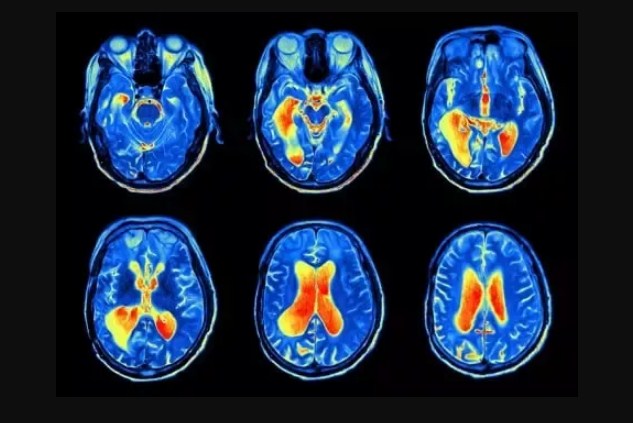Your brain is one of the most complex organs in your body. Its intricate functions are mainly responsible for your cognitive abilities, memory, and emotions. However, when an issue arises with your brain, finding the right specialist can be challenging.
Two specialists who are often consulted for brain imaging are radiologists and neurologists. But, what is the difference between them, and which one should you consult for your needs? In this article, we will explore the differences between radiologists and neurologists to help you make an informed choice.
Radiologists:
Radiologists are medical professionals specializing in diagnosing and treating diseases using medical imaging techniques. They are experts in managing various imaging scans such as x-rays, ultrasounds, CT scans, MRI scans, and nuclear medicine scans to diagnose and treat diseases in different parts of the body – including the brain.
Radiologists often work in hospitals and imaging centers, often collaborating with other healthcare professionals. They are primarily responsible for the analysis, interpretation, and reporting of imaging results to referring physicians.
Neurologists:
Neurologists are experts in the treatment and management of diseases related to the brain, spinal cord, and nervous system. They specialize in treating a range of neurological conditions such as brain tumors, stroke, Alzheimer’s disease, headaches, and other related medical issues.
Neurologists can order and interpret imaging scans such as MRI, CT, and PET to evaluate brain function and diagnose potential neurological conditions. They can also recommend other tests, such as electroencephalograms (EEGs) to evaluate brain activity.

Differences between Radiologists and Neurologists:
Radiologists and neurologists play distinct roles when it comes to brain imaging. The main difference between the two is in their area of focus. Radiologists primarily focus on imaging results while neurologists focus on the diagnosis and treatment of neurological conditions.
Radiologists often have a broader focus and may have different specialties, such as cardiology or oncology, while neurologists concentrate solely on neurological issues. Radiologists analyze and report on imaging, while neurologists use imaging as one tool among many to diagnose neurological issues.
When to Consult a Radiologist:
If your doctor refers you for an imaging scan, a radiologist will most likely perform and interpret the results. If you require follow-up or treatment, a neurologist may be consulted. Radiologists use imaging scans as a tool to diagnose and treat various medical conditions, but they may not have the expertise to evaluate or manage neurological conditions.
Radiologists may also be consulted if you have a traumatic brain injury, as imaging scans such as CT or MRI can evaluate the extent of the injury and guide treatment. They can also be consulted when seeking a second opinion about imaging results or when managing a condition that requires periodic scans.
When to Consult a Neurologist:
If you are experiencing neurological symptoms such as headaches, seizures, or loss of coordination, a neurologist can help. They can evaluate symptoms, interpret imaging scans, and recommend additional testing if necessary.
Additionally, suppose you require treatment and management of a neurological condition. In that case, a neurologist is ideally suited to provide the necessary treatment and collaborate with other specialized healthcare professionals to provide well-rounded care.
Neurologists can also be consulted if you require regular imaging scans to evaluate the progression of your condition or monitor the effectiveness of other treatments. They may also have expertise in the latest technological advancements in imaging, such as functional MRI or Diffusion Tensor Imaging (DTI).
Conclusion:
In summary, both radiologists and neurologists are crucial in diagnosing and managing neurological issues. Radiologists specialize in imaging and interpreting imaging results, while neurologists focus on neurological conditions’ diagnosis and management. Consulting with a neurologist is ideal if you are experiencing neurological symptoms or managing an existing neurological condition.
On the other hand, a radiologist’s expertise may come in handy in interpreting imaging results and monitoring responses to treatment. It is essential to collaborate with both specialists to receive comprehensive and well-rounded care tailored to your specific needs.
FAQ
1. What is a radiologist, and what do they do?
A radiologist is a medical professional specializing in medical imaging. They use various techniques, such as x-rays, CT scans, MRI scans, and nuclear medicine scans, to diagnose and treat diseases in different parts of the body, including the brain. They analyze and interpret imaging results and report them to referring physicians.
2. What is a neurologist, and what do they do?
A neurologist is a medical professional specializing in the diagnosis and treatment of diseases related to the brain, spinal cord, and nervous system. They treat a range of neurological conditions, such as brain tumors, stroke, Alzheimer’s disease, headaches, and other related medical issues. They can order and interpret imaging scans to evaluate brain function and diagnose potential neurological conditions.
3. When should I consult a radiologist?
You should consult a radiologist if your doctor refers you for an imaging scan, such as an x-ray, CT scan, or MRI scan. Radiologists can perform and interpret these scans to diagnose and treat various medical conditions. They can also be consulted if you have a traumatic brain injury or require a second opinion about imaging results.
4. When should I consult a neurologist?
You should consult a neurologist if you are experiencing neurological symptoms, such as headaches, seizures, or loss of coordination. They can evaluate symptoms, interpret imaging scans, and recommend additional testing if necessary. Additionally, if you require treatment and management of a neurological condition, a neurologist is ideally suited to provide the necessary treatment and collaborate with other specialized healthcare professionals to provide well-rounded care.
5. Can radiologists diagnose neurological conditions?
Radiologists can use imaging scans to detect abnormalities in the brain that may indicate a neurological condition, but they do not specialize in diagnosing or treating neurological conditions. The interpretation of imaging scans is just one tool among many used in the diagnosis and management of neurological conditions. A neurologist should be consulted for the diagnosis and treatment of neurological conditions.
